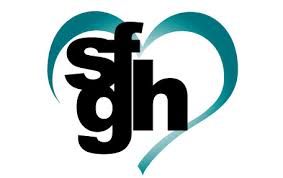Arterial Imaging of Inflammation and Resolution After Endovascular Surgery
| Status: | Recruiting |
|---|---|
| Conditions: | Peripheral Vascular Disease, Cardiology |
| Therapuetic Areas: | Cardiology / Vascular Diseases |
| Healthy: | No |
| Age Range: | 40 - Any |
| Updated: | 12/27/2018 |
| Start Date: | June 1, 2017 |
| End Date: | June 2020 |
| Contact: | Christina Kuhrau |
| Email: | christina.kuhrau@ucsf.edu |
| Phone: | 415-353-4367 |
This study evaluates the local inflammatory and resolution response of patients undergoing
peripheral vascular intervention like an angioplasty of the superficial femoral artery or
popliteal artery through the use of Positron emission tomography-magnetic resonance imaging
(PET/MRI). PET/MRI will be performed prior to intervention, one day and one week after
intervention.
peripheral vascular intervention like an angioplasty of the superficial femoral artery or
popliteal artery through the use of Positron emission tomography-magnetic resonance imaging
(PET/MRI). PET/MRI will be performed prior to intervention, one day and one week after
intervention.
Magnetic resonance imaging (MRI) imaging allows for non-invasive visualization of anatomical
structures while Positron emission tomography (PET) scans allow for the observation of
molecular and cellular activities. Using a PET/MRI in patients with vascular injury post
intervention with help evaluate the vascular inflammatory and resolution response in vivo.
Acute vascular injury through endovascular intervention results in recruitment of
inflammatory cells such as macrophages to the vessel wall. Macrophages are very metabolically
active and consume glucose at a high rate. In PET/MRI, subjects are injected with
18F-Fluorodeoxyglucose (18F-FDG), a radioactively labeled glucose molecule which is consumed
by macrophages.
When 18F-FDG is consumed, it is retained within macrophages more avidly than other
atherosclerotic lesion elements. Thus, FDG-PET provides a unique and noninvasive approach to
quantitatively measure macrophage activity at the intervention site.
This study will provide key pilot data for developing an imaging surrogate endpoint for
pro-resolving mediator treatment intervention trials going forward.
structures while Positron emission tomography (PET) scans allow for the observation of
molecular and cellular activities. Using a PET/MRI in patients with vascular injury post
intervention with help evaluate the vascular inflammatory and resolution response in vivo.
Acute vascular injury through endovascular intervention results in recruitment of
inflammatory cells such as macrophages to the vessel wall. Macrophages are very metabolically
active and consume glucose at a high rate. In PET/MRI, subjects are injected with
18F-Fluorodeoxyglucose (18F-FDG), a radioactively labeled glucose molecule which is consumed
by macrophages.
When 18F-FDG is consumed, it is retained within macrophages more avidly than other
atherosclerotic lesion elements. Thus, FDG-PET provides a unique and noninvasive approach to
quantitatively measure macrophage activity at the intervention site.
This study will provide key pilot data for developing an imaging surrogate endpoint for
pro-resolving mediator treatment intervention trials going forward.
Inclusion Criteria:
- Over the age of 40,
- With resting or exercise ABI <0.9, TBI <0.6
- Have claudication or limb threatening ischemia & planning to undergo a percutaneous
angioplasty of SFA or popliteal artery.
Exclusion Criteria:
- Evidence of active infection
- Hypersensitivity or allergy to contrast agents
- Chronic liver disease, renal disease (GFR< 30) or chronic inflammatory disorders
- Insulin dependent diabetes
- Presence of metal within subject's body, pacemakers, or defibrillators
- BMI < 20 or >35
- Recent other major surgery or illness within 30 days
- Use of immunosuppressive medications or steroids
- History of organ transplantation
- Pregnancy, or plans to become pregnant, or lactating
We found this trial at
2
sites
Click here to add this to my saved trials
1001 Potrero Ave
San Francisco, California 94110
San Francisco, California 94110
(415) 206-8000

Phone: 415-353-4379
San Francisco General Hospital San Francisco General Hospital and Trauma Center (SFGH) is an essential...
Click here to add this to my saved trials